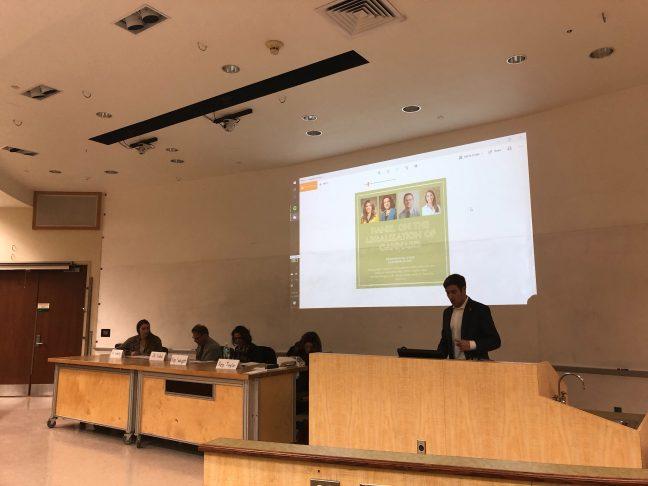The University of Wisconsin Political Science Student Association and the American Medical Student Association hosted a panel of UW professors and state reps to discuss the legalization of marijuana Monday night.
Panel member and State Rep. Chris Taylor, D-Madison, introduced a bill legalizing the use of medicinal cannabis. Taylor said this bill would help those with severe, debilitating conditions while also heavily regulating use.
Taylor said when she began working on the issue of medical marijuana eight years ago she knew very little about it, but through her time with the legislature, she has heard from many people who have loved ones desperate to manage pain that would greatly benefit from medical marijuana use.
“Family members are really willing to break the law to get marijuana for their loved ones who are suffering,” Taylor said.
State Rep. Melissa Sargent, D-Madison, who was also on the panel, has a bill that would legalize marijuana for both medical and recreational uses. She said that Wisconsin is behind as many of our surrounding states have already legalized marijuana.
Sargent said that by not legalizing marijuana Wisconsin is missing out on the increased revenues the industry could bring.
Panel member and professor in the School of Pharmacy and the department of neurology Dr. Barry Gidal said legalization is safer because it allows for regulation. He said that currently people using both marijuana and CBD without the input of a doctor do not know what they are putting into their bodies.
Sargent said legalization must include the establishment of labs where marijuana can be tested and regulated.
“The most dangerous thing about pot in Wisconsin is that it’s illegal,” Sargent said.
Sargent also said part of the issue is how marijuana is classified — it is currently classified as a schedule one drug, meaning it has no accepted medical use and has a high potential for abuse.
Assistant professor at the UW School of Pharmacy Natalie Schmitz who was also on the panel said that this classification seems “mind-blowing” as both cocaine and methamphetamine are classified as schedule two drugs, which are considered to have a lower potential for abuse.
“It’s kind of a vicious cycle because a lot of the people that are opposed to legalization say that they want more research on if it’s effective and safe and it’s challenging to do the research when it’s a class one substance,” Schmitz said.
Taylor said that we need to rethink our drug policies, she said medical marijuana can be an alternative painkiller for people who do not want to take opioids.
Taylor said she has spoken to people who were prescribed opioids and it derailed their lives, but after switching to marijuana they were able to feel better and become functional again.
“Marijuana is not gonna be the cure-all it’s not gonna be the ultimate panacea, but for some people, it is gonna be the thing that allows them to eat, allows them to sleep, alleviates their suffering, helps alleviate pain when they are at their worst,” Taylor said.


